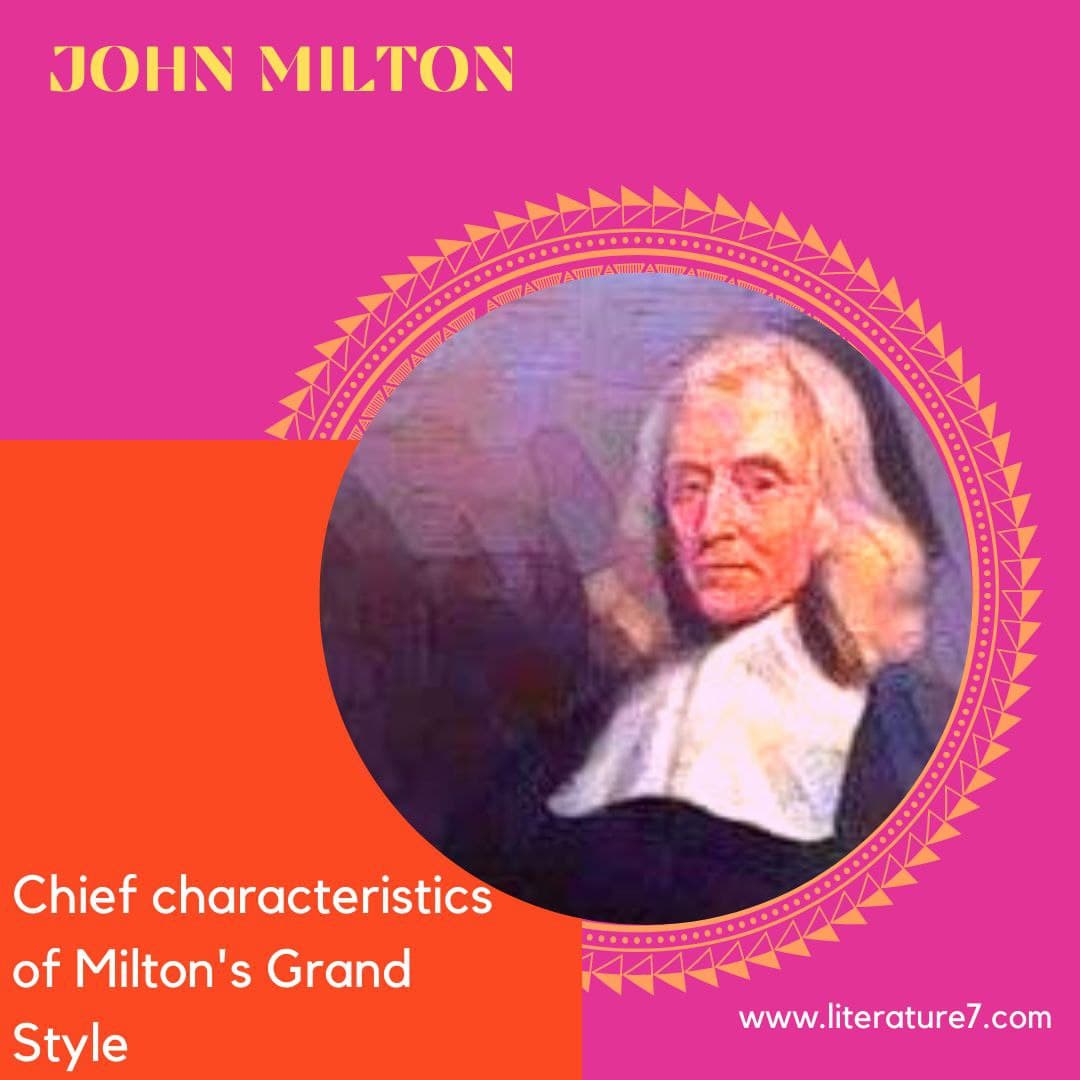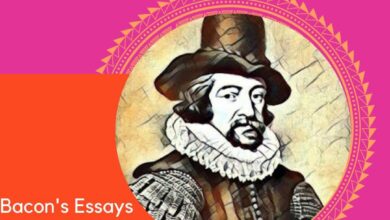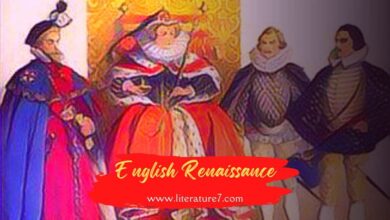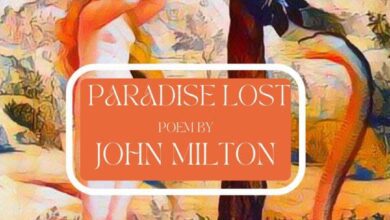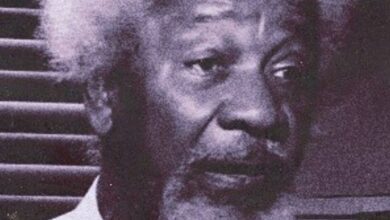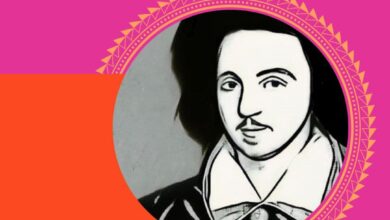Discuss the grand style of john milton in paradise lost
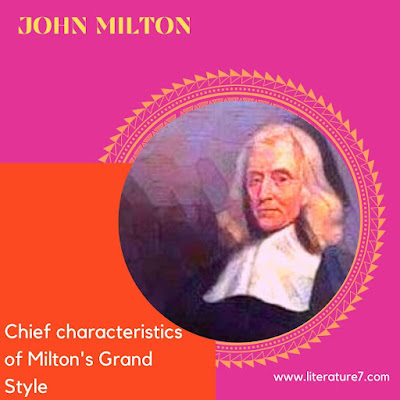
Milton’s Megalomaniacal Loftiness
Milton, according to Arnold, is the great master of Homer and Virgil’s grand style in the English language. We find “grandiose thoughts spoken in a grandiose manner” in his poetry. Dr. Johnson referred to this when he said that Milton’s poetry possessed a “gigantic loftiness.” He also went so far as to say that “before the greatness displayed by Milton, all other greatness shrinks away.” This greatness and nobility of style are a product of his subject’s “high seriousness” and nobility and his handling of it.
As Arnold emphasizes, Milton possessed a noble poetic nature; his chosen subject is noble and sublime. It has been handled with seriousness, i.e., with the utmost austerity and economy. Milton’s grand style is the way he dresses a grand and noble subject. The style complements the subject: both are equally elevated and sublime, contributing to the overall grandeur.
The Poet’s Calling’s High Concept
Milton had a lofty view of the poet’s calling and had painstakingly prepared himself for it by burning the midnight oil. He was not one of those who wrote for the sake of writing. In his personal life, chaste and virtuous, one who, even as a young man, indulged only in “unreproved pleasures free,” his intention in writing was to ensure that the great religious teachers’ teachings and lofty ideals prevailed.
Read more Chaucer art of characterization in prologue to the canterbury tales
All of his poetry, and a good deal of his prose, is one long sermon on living a righteous life. “His Biblical and classical education combined to shape his view of a poet as more than a versifier, as someone whose work must be explained by the lesson imparted by the poem.
The loftiness of Theme and Purpose
His intent in Paradise Lost is to prove “eternal providence,” “to justify God’s ways to men,” and to demonstrate that disobedience is a serious sin that resulted in man’s fall, resulting in suffering and death. To demonstrate this fact, he chose the Biblical tale of Adam and Eve’s disobedience in tasting the forbidden fruit of the Tree of Knowledge. Thus, there is a lofty intent and a grandiose theme.
Milton’s setting for his grand theme is cosmic in scope and sweep. In this regard, Raleigh writes, “It (Paradise Lost) is concerned with the fortunes of the human race, not of a city or an empire, but of the entire human race, and with that specific event in the race’s history that has formed all its destinies.” Around this event, the plucking of an apple, the histories of Heaven, Earth, and Hell are arranged according to the strictest laws of the ancient epic.
Read also Chaucer’s portrayal of ecclesiastical characters in the prologue to the canterbury tales
Universal Space serves as the setting for the action. Eternity is the time period depicted. The characters are God and all his Creatures, and they are all seen in the most direct and inescapable connection to the central case, so that not a single occurrence, hardly a single line of the poem, does not point backward or forwards to this central theme.”
Avoidance of the Everyday
Milton’s theme is lofty and grand, his setting cosmic, and his style equally noble and exalted. This elevation has been accomplished by the use of a variety of instruments. There is an aversion to the mean, vulgar, and commonplace, as well as a preference for the uncommon and unfamiliar. This explains his Latinisms and archaisms, as well as the plethora of Biblical and classical allusions scattered throughout his poetry, most notably in Paradise Lost.
See more Plan and purpose of the prologue to the Canterbury tales
He was concerned with pre-history, with events that occurred prior to the world’s creation, and these are events that exist beyond the realm of human existence. As a result, he wisely avoids the slightest hint of unworthy connection in his style; even the use of a few homely words, phrases, or figures of speech would have struck a jarring tone, detracting from the overall impact. As a result, Raleigh states, “Milton defines the concrete, the particular, and the entity using general and abstract terms for the dignity and scope they impart.” He retains an unflinching loftiness throughout; his style is never “debased by a mean word.”
Austerity and Condensation to the Extreme
Second, Milton employs extreme severity or austerity, which lends his style an air of elevation and loftiness. Never is a single term superfluous. He has an almost Dantesque epigrammatic brevity.
Related Chaucer’s contribution to the growth and development of the English language
Milton’s particular style renders reading Paradise Lost a daunting task: it is a strenuous academic activity devoid of relaxation. His penchant for excessive condensation explains numerous Latinisms, reversed constructions, mixed metaphors, and frequent omissions of connectives and prepositions. This endows his style with an uncommon purity, majesty, and grandeur; he retains an almost superhuman elevation throughout.
Suggestiveness
Another characteristic of Milton’s style contributing to its elevation and grandeur is its suggestiveness; he implies much more than he defines. The reader must exercise his or her imagination to understand the author’s complete sense. The poet addresses events, circumstances, and characters that cannot be adequately represented in everyday language.
Related Chaucer’s humour and irony
As a result, as Macaulay points out, His style reveals expansive vistas to his readers. He provides broad clues and leaves the remainder to the reader’s imagination.” Thus, the enormous bulk of Satan is expressed with a few appropriate and suggestive strokes. Since he is lying “head uplifted above the tide,” he is compared to a sea monster named Leviathan, “as whom the fables name of monstrous height.”
The poet does not state that the figure had ahead; instead, he states that it seemed to have one; he does not state that it wore a crown, but that it wore anything that resembled one. The fear of death’s spectral figure has been expressed with intensity and restraint; the poet’s vibrant imagination has sublimated his style and dialect here; the cumulative impact is that of a far larger utterance; it is the greatness of mind and heart rendered vocal.
Utilization of Homeric Similes
The same motivations and tendencies, the same unwavering concern for remoteness and loftiness, can be seen in his most often employed similes. Almost all of his statistics and contrasts depict concrete objects in relation to other tangible objects and historical occurrences in relation to other historical occurrences. His figures are known as historical parallels in that they use the names and events of human history to elucidate and elevate the less common names and events of his pre-historic theme.
Occasionally, in the manner of Homer, he borrows a figure from rural life, as when he compares the devils swarming into Pandemonium to a swarm of bees. However, he prefers to maintain dignity and distance by comparisons to ancient history and mythology, or to those great and strange things in Nature that repel intimacy—the sun, the moon, the sea, planets in opposition, a shooting star, an evening mist, a will-o’-the-wisp, a vulture descending from the Himalayas, the sea-beast Leviathan, and a hundred more reminiscences of the ancient world.
Superb Blank Verse
Milton’s verse also makes a significant contribution to the feeling of loftiness and sublimity. His mastery of blank verse is astounding. The meaning does not end with each line but continues from one to the next. Thus, we obtain the verse paragraph that Saintsbury regards as his most significant contribution to English versification. It is this mighty, resounding pronouncement that qualifies him as “a mighty-mouthed inventor of harmonies.”
All of these elements add to Milton’s style’s loftiness and grandeur. According to Hanford, “rhythm, language, sentence form, and imagery all blend into an indistinguishable garment of Miltonic thought and feeling.” These factors combine to create a more coherent and unwavering elevation than is seen elsewhere in the literature.
